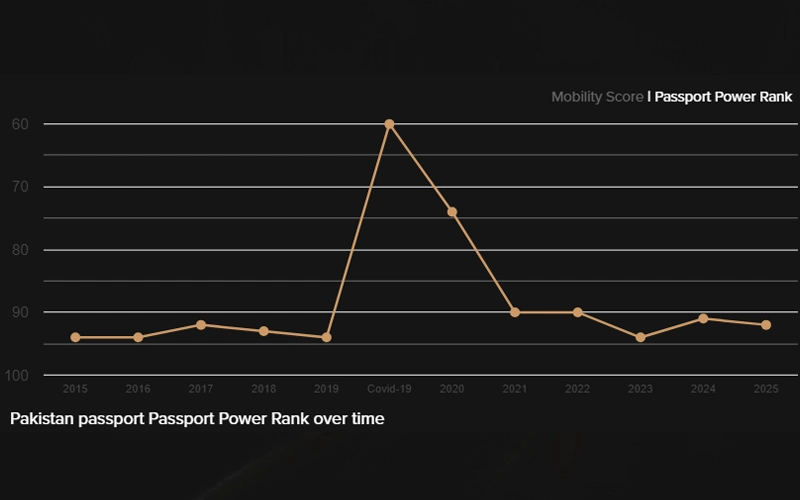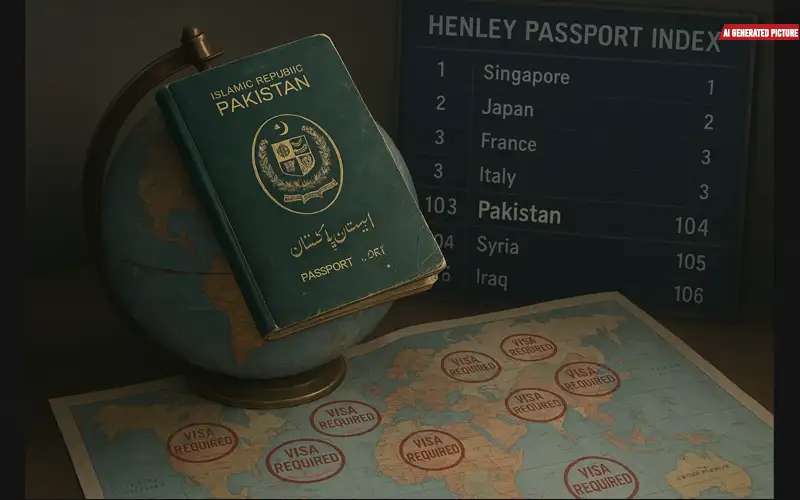The Pakistan passport ranking 2025 has again been declared among the weakest worldwide, placing fourth worst for the fifth consecutive year in the Henley Passport Index issued on October 7.
The global index, ranking 199 passports by visa-free access, placed Pakistan at 103rd position, tied with Yemen, ranking higher only than Iraq, Syria, and Afghanistan in global mobility access.
According to the index, Pakistan and Yemen passports allow visa-free access to only 31 destinations out of 227, while Iraqis can visit 29, Syrians 26, and Afghans 24 countries respectively.
The Henley Passport Index calculates each country’s visa-free score based on the destinations accessible without a visa or those offering visas on arrival to their citizens for global travel.

Pakistan has consistently remained near the bottom of the rankings, standing 100th in 2024 and 2023, 109th in 2022, and 107th in 2021, with minor fluctuations in its visa-free score.
Singapore once again secured the top position, offering visa-free access to 193 destinations. South Korea followed in second place with 190, while Japan ranked third with access to 189 destinations.
READ: Bahrain work visa guide 2025: Types, eligibility, requirements & How to Apply
Germany, Italy, Luxembourg, Spain, and Switzerland collectively ranked fourth, each providing visa-free entry to 188 destinations, while several European countries shared fifth place with 187 accessible locations.
For the first time since the Henley Index began two decades ago, the United States fell from the top ten, now ranking 12th alongside Malaysia, with visa-free access to 180 destinations.
The United Kingdom, once ranked first in 2015, also dropped to eighth position, its lowest ever. The United Arab Emirates’ passport, however, improved to eighth place with a visa-free score of 184.
Meanwhile, China saw its passport ranking decline from 59th to 64th, with visa-free access dropping from 85 to 82 destinations, showing a reduction in its global mobility reach.
The Pakistan passport ranking 2025 highlights limited international access for Pakistani citizens, reflecting the country’s diplomatic challenges and the need for expanded bilateral travel agreements worldwide.












